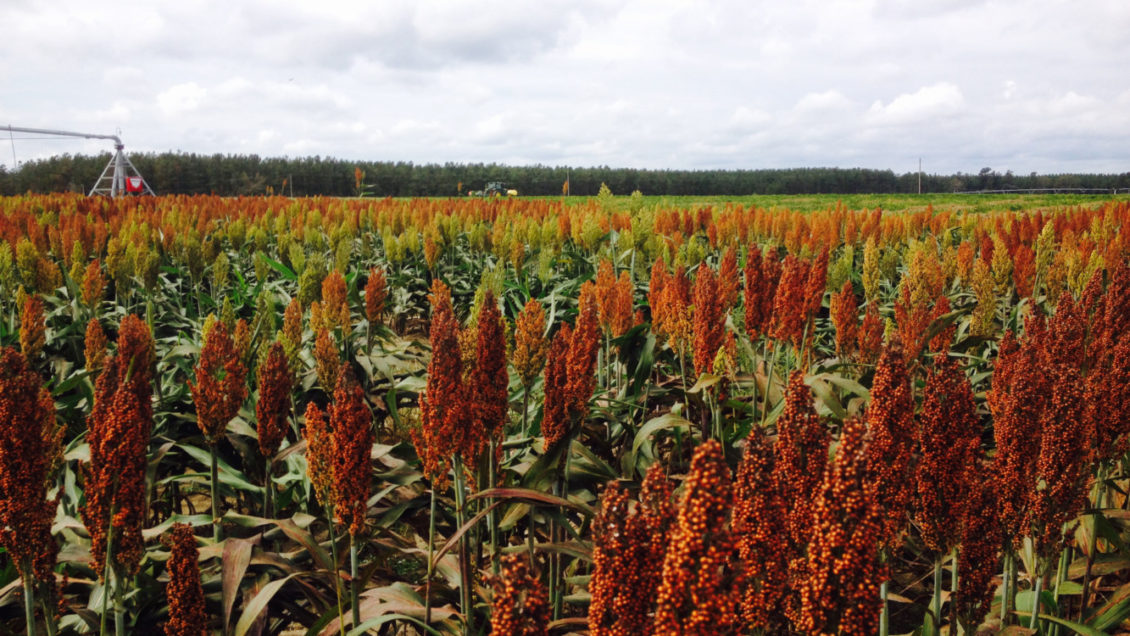CLEMSON – Some Clemson researchers have received one of the first-ever plant-based meat competitive research grants to study how field peas and grain sorghum can be organically grown to be the next generation of nutrient-dense plant-based meats.

The researchers are Dil Thavarajah, Rick Boyles and Stephen Kresovich, together with Pushparajah Thavarjah of the Tile Council of America. They have received a 2-year, $250,000 grant from the Good Food Institute to determine how to organically grow field peas and sorghum that produce protein levels equal to that of meats.
Dil Thavarajah, Clemson University associate professor of pulse quality and nutrition, as well as lead investigator for the grant, said this research is needed because consumer demand for organically grown plant-based protein is increasing.
“More and more people are finding that eating plant-based protein is easier to digest,” Thavarajah said. “There is also an increase in demand for plant-based proteins from the allergen- and gluten-free markets. Field pea is an excellent source of plant-based protein and sorghum is a gluten-free ancient grain that has tremendously diverse nutritional traits. If we can determine how to organically grow these two crops, we can help meet the increasing demands for organically grown plant-based meats.”
The Clemson study involves rotating field peas with sorghum.
“We believe this rotation of a winter legume, such as field pea, and warm-season cereal grass, such as sorghum, can fit well into organic cropping systems in regions across the United States such as in the southeast,” said Boyles, a research scientist at Clemson’s Pee Dee Research and Education Center in Florence. “These crops have few shared pests and diseases. They are relatively sustainable in terms of soil nutrient and water requirements and their growing seasons mesh well.”

Field pea is a pulse crop. These crops are called “poor man’s meat” because they are rich in nutrients, such as proteins, but do not cost as much as meat. Information from the United States Department of Agriculture Agricultural Research Service shows a 1 cup serving of field peas contains a little more than 12 grams of protein. A 3 ½ ounce serving of roasted chicken breast provides about 31 grams of protein. The recommended daily allowance of protein depends on age, sex and physical activity level. The USDA’S MyPlate program recommends eating a variety of proteins including plant protein foods, which are lower in saturated fat.
Sorghum is a cereal crop that generally is low in protein. Boyles said he and his team have recorded protein levels of more than 17 percent in some cultivars grown in South Carolina.
“The problem is humans and animals poorly digest a significant portion of plant storage proteins, called ‘prolamins,’ in sorghum grain,” Boyles said. “Given the diversity in protein content and digestibility, we are searching to identify and develop sorghum cultivars and hybrids that not only are productive and resilient but also possess the optimal grain nutrient composition for human foods and animal feeds.”
Because uses of these crops can vary greatly, Boyles and his team are using genomic tools and advanced techniques to measure nutrient composition to accommodate multiple markets.
Kresovich, director of Clemson’s Advanced Plant Technology Program, said crop management will be an important factor in the study.
“We are attempting to optimize for a specific type of organic system most appropriate for our crop and our region,” Kresovich said. “Protein and nutrient values are impacted by the quality and effectiveness of the overall cropping system.”
Sustainability of this production system is critical.
“It’s likely that environmental and pest stresses, together with desired organic market products, will be different from conventional commercial production,” Kresovich said. “We’ll need to focus on yield, stability and quality under this new type of management system.”
Various on-farm education activities will be provided by Clemson Cooperative Extension Service agents to teach the public about what the researchers find in their studies. These activities include developing an information portal to assist organic producers with production, variety selection, seed grading, nutritional quality, as well as provide marketing information. Grower-friendly Extension materials will be provided and an annual organic grower Extension on-farm workshop will be held via the USA Dry Pea and Lentil Council and United Sorghum Checkoff. Dates and other information related to these activities will be available later.
In a similar study, the team received a $1 million grant in 2018 from the United States Department of Agriculture to show South Carolina farmers how organically growing cereal and pulse crops can improve nutrition while lowering production costs. Thavarajah said this new project will complement the previous one by continuing organic plant breeding activities the team believes will lead to protein biofortification in pulse crops.
The Good Food Institute is an organization that focuses on bringing innovative ideas, such as plant-based meats, to tables around the world.
-END-
Get in touch and we will connect you with the author or another expert.
Or email us at news@clemson.edu

